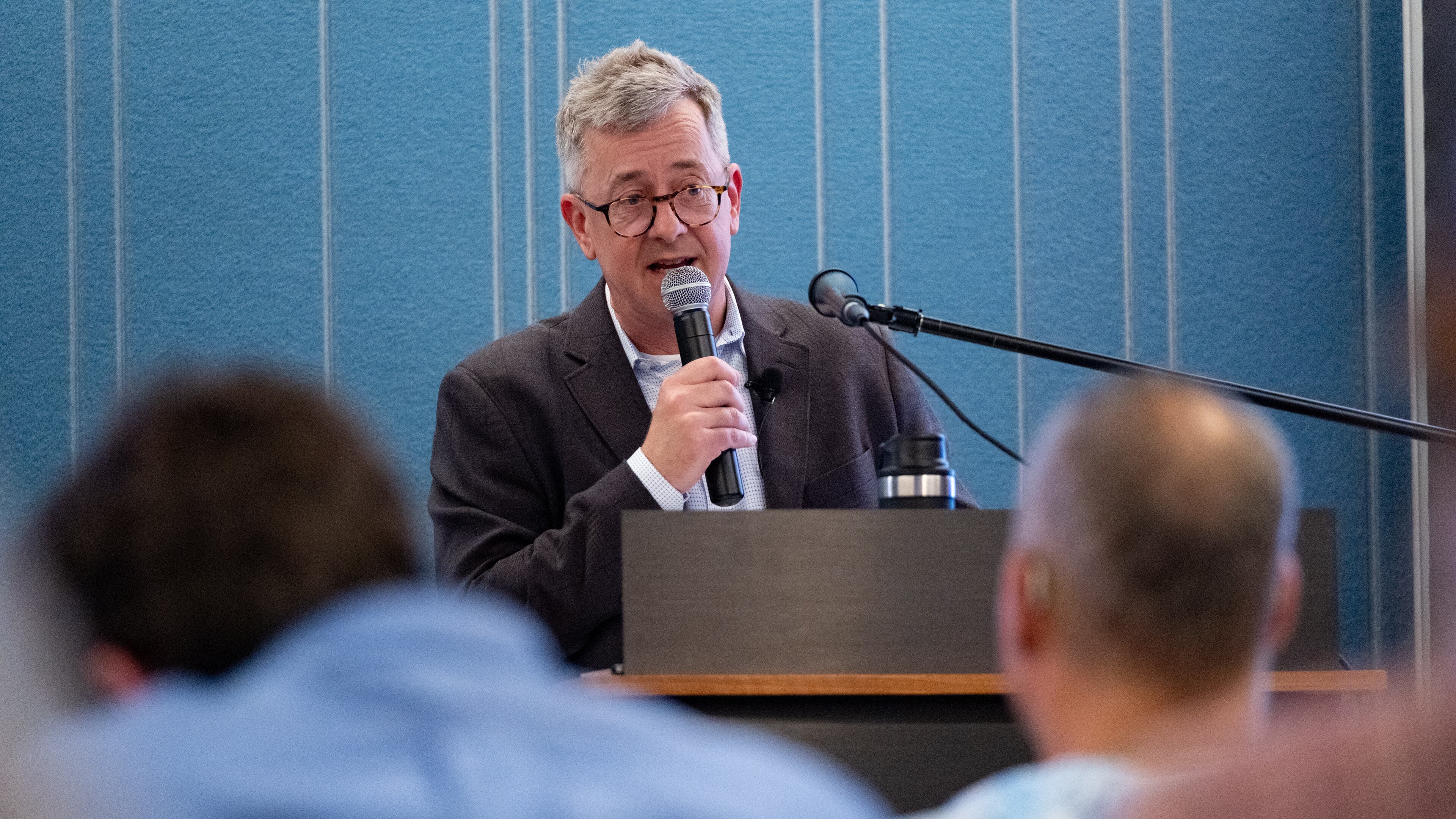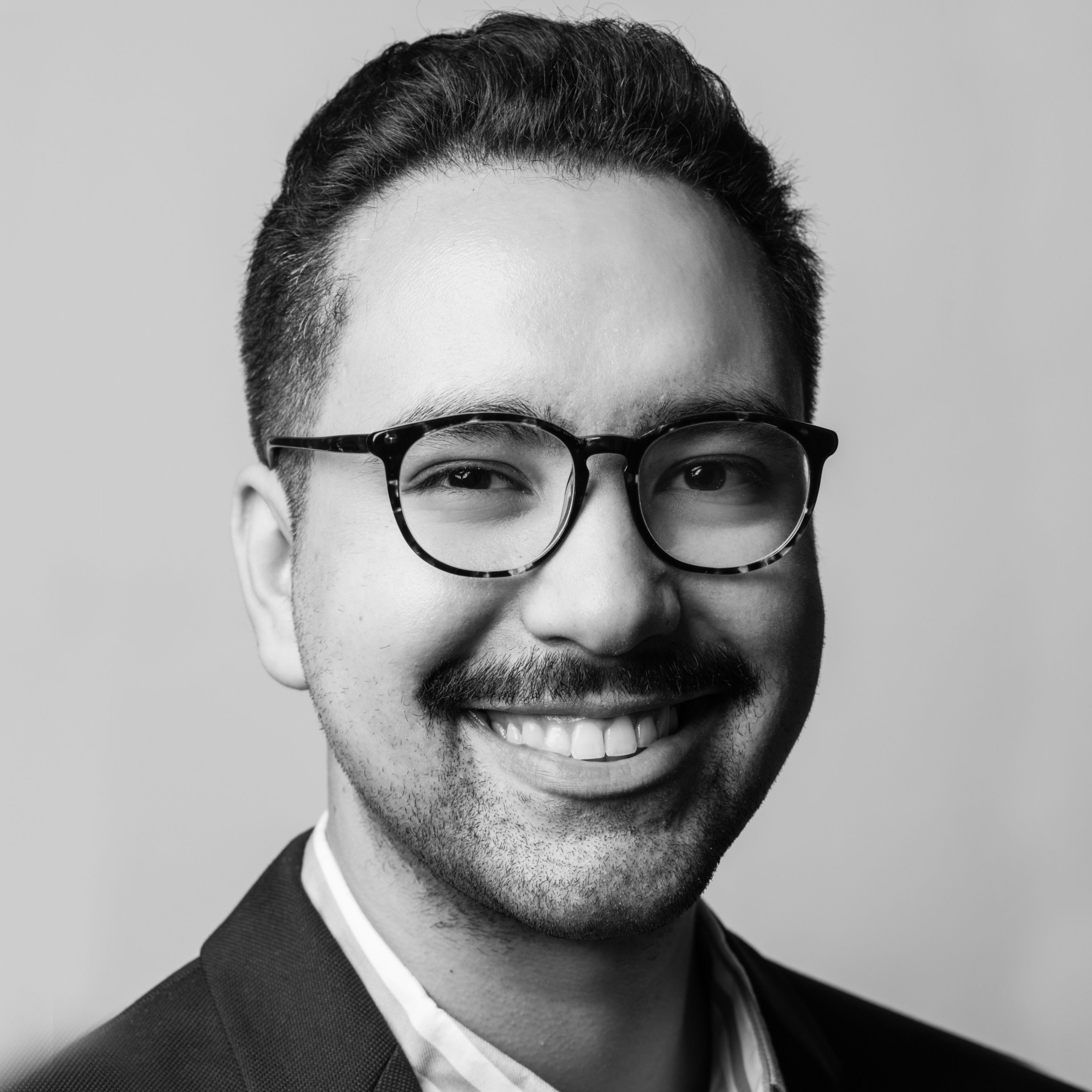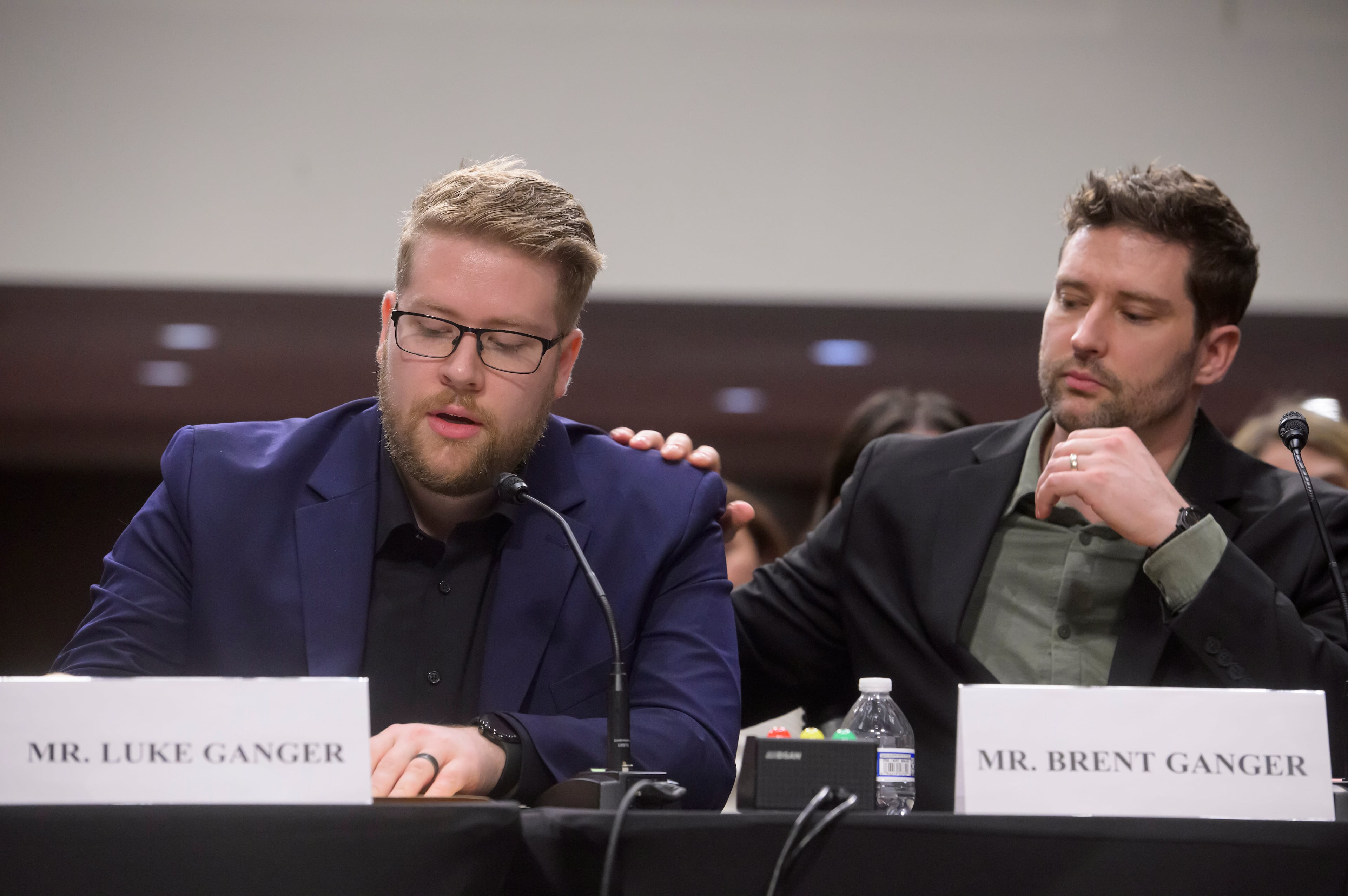AJC’s Jeremy Redmon on ‘Bending Without Breaking’

Jeremy Redmon, award-winning journalist at The Atlanta Journal-Constitution, delivered a keynote Tuesday as part of the “Bending Without Breaking: How to Remain Resilient and Avoid Burnout in Journalism” event co-hosted by the Association of Health Care Journalists, the AJC, the Atlanta Press Club and the Georgia chapter of the Society of Professional Journalists at our offices in Midtown.
The event brought together journalists and others from across the Atlanta region to explore trauma-informed reporting and strategies for sustaining mental health on the job. The evening program featured perspectives from a panel of veteran journalists: Ellen Eldridge of GPB, Julien Virgin of WABE and Andrew Morse, the AJC’s president and publisher. Their discussion was moderated by Sophia Qureshi, founder of 285 South.
In addition to his role at the AJC, Redmon teaches at the University of Missouri Journalism School. He’s also a 2022 Ochberg Fellow with the Global Center for Journalism and Trauma. We caught up with Jeremy to learn more about the inspiration behind the event, why it matters now and what hosting it at the AJC meant to him.
What motivated you to bring the “Bending Without Breaking” session to Atlanta?
I often think about trauma-informed journalism, since I teach a course about it every semester for Mizzou. But I have also been ruminating a lot about the rapid changes happening in our industry, the fast pace of the news under the new Trump administration and the traumatic events we have covered in recent months, including the shootings at Fort Stewart and the CDC. All of this inspired the idea for our event.
What does the title “Bending Without Breaking” mean to you personally?
I got the idea for that title from “Resilience,” a fascinating book published in 2012 by a pair of experts on post-traumatic stress disorder and resilience, Dennis Charney and the late Steven Southwick. They wrote that: “As we worked with traumatized individuals, we often wondered about survivors who seemed to somehow cope effectively with the negative effects of stress, those who did not develop stress-related symptoms, or who, if they developed symptoms, carried on successfully nevertheless. The term ‘resilient’ (meaning having the capacity to bend without breaking, to return to an original shape or condition) described these survivors well. They had been ‘bent’ by their traumatic experiences, but not broken.” I love that metaphor.
What are the core principles of trauma-informed journalism that you wanted to highlight?
Trauma-informed journalism focuses on understanding the various forms, causes and symptoms of trauma. It also emphasizes reporting ethically and responsibly on people who have experienced trauma so that we do not retraumatize them. In short, it emphasizes doing no harm. Additionally, it helps journalists learn how they can remain healthy and safe while they do their important work.
How do you think trauma-informed practices can change the way journalists approach their work?
It can help them understand the benefits of being more patient and transparent when covering people who have experienced trauma. It can help them understand the value of seeking more consent when interviewing vulnerable people. All of this leads to more trust, which can result in deeper and more intimate and compelling reporting. It can also help the journalists learn how to better pace themselves, practice self-care and avoid burnout. And that is part of my thesis: Healthy journalists can produce healthy journalism, which helps uphold the First Amendment, the Fourth Estate, justice and truth. The reverse is also true: Unhealthy journalists can become ineffective at doing this important work. To me, practicing self-care is a form of resistance against attacks on what we hold dear, including our industry and First Amendment rights.
What do you hope attendees took away from your presentation?
I hope they each left our event with at least one new idea for self-care they will try. Though we sometimes compete against each other, we are all part of the same tribe. We are all brothers and sisters. I want them to strive for longevity in this business, as we are supposed to be a force for good in this world. They can accomplish that by learning to bend without breaking.
How has your own experience reporting on traumatic events shaped your approach to resilience?
During my more than three decades of reporting for newspapers, I have covered numerous forms of trauma, including natural disasters, mass shootings, refugee crises, mental illness, addiction and suicide. In particular, making three trips to Iraq to cover the war there as an embedded journalist between 2004 and 2006 made me focus more on my own self-care. Since then, I have constantly refined how I take care of myself so that I can remain healthy and stay in this business longer. Meanwhile, I have learned it is crucial to switch gears while I work, build in time for breaks and develop identities outside of journalism.
What have you learned from teaching trauma-informed journalism to students?
Teaching my Covering Traumatic Events course for Mizzou has made me a better journalist and a better human being. Through teaching, I have also become more patient and empathetic. I am often inspired by my students and the stories they are interested in. I am deeply grateful for the opportunity to help guide them. This is one of the highlights of my life.
Can you share a moment in your career when practicing self-care made a difference?
Self-care makes a difference for me every day. Teaching, gardening and officiating NCAA lacrosse matches have become important activities that help me enter flow states, mentally reboot and come back to my journalism with a fresh perspective and new ideas. All of this improves my reporting for the AJC.
What advice would you give to other newsrooms considering similar programming?
Start with the Global Center for Journalism and Trauma, which offers many free resources at gcjt.org. The Ochberg fellowship I completed with the center at Columbia University in 2022 changed my life and made me a better journalist, teacher and human being. I have become an evangelist for teaching trauma-informed journalism. And I want to help organize more events like the one we held Tuesday.
The AJC Press Room is maintained by the AJC’s communications team and gives readers a behind-the-scenes look at our people, products and programming. Follow us on Instagram and X for more updates about the AJC.
For media inquiries, reach us at press@ajc.com.



